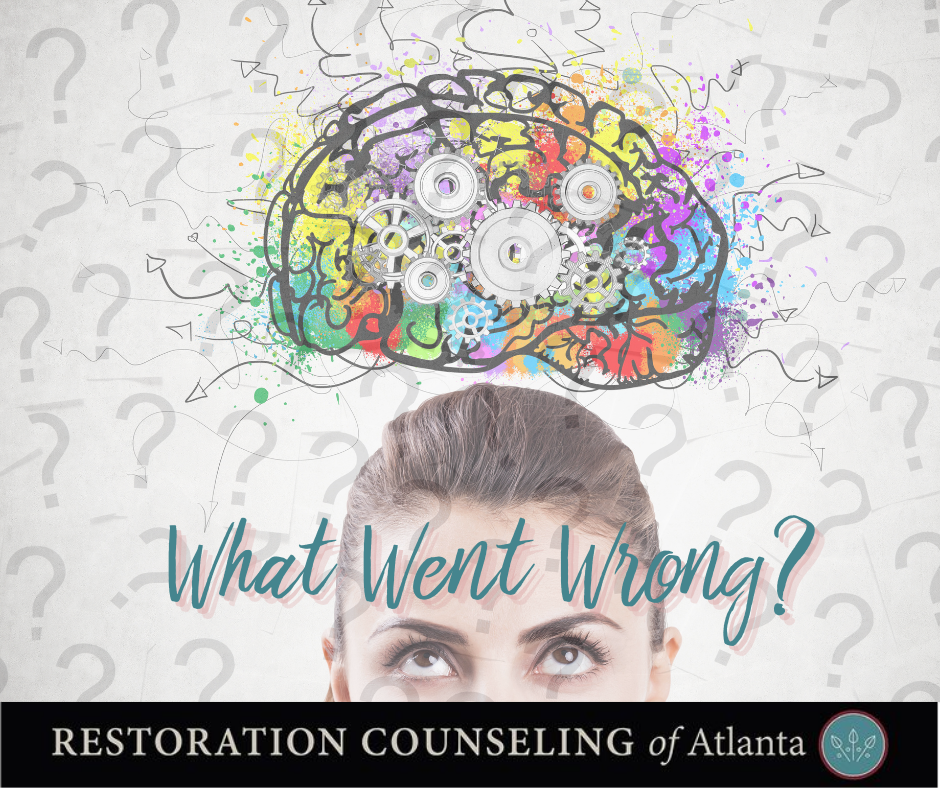EMDR – Hope for Healing
How do you heal when you’re not quite sure what happened or when you don’t know specifically what went wrong?
Meet Julia
It was my first phone call with Julia* and she was very skeptical that counseling would be different this time. Julia had been told about EMDR by a friend she respected. She had done her research. To her, not only did it sound very odd and new-age, but it seemed to be most helpful for people who had PTSD. She associated PTSD with soldiers returning from combat or first-responders recovering from all the events they had witnessed at work.
Julia was neither a veteran or a first responder. She was a married woman in her late 30s, juggling work and family. Julia had started coming to counseling after a bad break-up in college. Over the years, Julia found herself returning to counseling when she needed support and a caring and objective voice in her life. But this was different. She could not shake off this deep anxiety. If she dared slow down, she felt that something bad would happen. She knew the right answers. She memorized bible verses and talked to her friends about casting her cares on Jesus. Yet, she still felt stuck and hopeless. Could EMDR help?
What is going on?
“Well, you see, that’s one of the most amazing things about humans,” I replied. Then I explained that we create imprints and neurological pathways with smells, images, memories, and even body sensations. This includes good and unpleasant ones. Over the years, our bodies have stored up information that was helpful to our survival and well-being at some point in time. However, our bodies often get stuck when we don’t know it’s time to let go of an old tool or coping skill.
Julia then shared with me something I frequently hear from clients. She told me that counseling had been helpful but that she felt something else was missing in her healing. A recognized pattern kept showing up in her relationships, but she had not been able to work on it in therapy in the past. She believed this was because she could not explain it with words. The counselor would ask her to explain and ask questions. In response, all she could say was, “I don’t know; it’s just what I do.”
Do you relate to Julia’s frustration?
Is change possible?
I believe there is a misunderstanding when we think that we can primarily heal from what we can talk about and accurately remember. Traditional talk therapy can be difficult, especially when we are hurting because of something stored in our system before we were old enough to have words to explain it. Something may run so deep that we are not aware of it. Sometimes called early or pre-verbal trauma, this complex wound is challenging to identify. Not only were we unable to put it into words, but often our symptoms are the long-term effects of what we did at the time to survive.
What happened to us (abuse, loss of a loved one, or parent’s divorce) and what didn’t happen to us (lack of emotional stability or even neglect) gets stored in our body. It is imprinted in our brain because our bodies want to be prepared for when trouble strikes again.
Does the past matter?
Our bodies are wired for survival, and when it does not know what to do with a file, it simply stores it. Think of a storage unit or attic filled with boxes. Each unlabeled box contains pieces of information (images, smells, sounds, songs, and body sensations) that help create memories and add meaning to your story. There is no timestamp or expiration date on these boxes. Instead, they accumulate. Most of the boxes in our mental attics contain things that were very helpful in the past. These previously helpful items can range from your classic fight, flight, freeze responses to sophisticated strategies of earning love and connection by being perfect and learning to stay safe by never trusting others.
Do we need to change?
As you can imagine, over time, this storage system gets messy and simply ineffective. Part of what complicates things is that we need some of that stored information to keep us safe, alive, and connected. The problem is that over time, the boxes and files that were keeping us safe begin to start causing other problems. For example, we may begin overreacting to a family member or feeling crazy for needing to check our kids to make sure they are breathing in the middle of the night. Or we may be responding to events in ways that are not what we would choose if we were not in crisis or survival mode. These old boxes keep us from making the connections, relationships, and choices that we want today.
How do we change?
How do we clean out our mental attics when the stuff there is actually hurting us, keeping us from having the connections and relationships we want? Can we convince our bodies and brains to clean out the attic and move towards healthier habits? How?
Remember Julia?
She doesn’t have a specific memory of when things became an issue for her. There is not a specific traumatic event she can point to. She only had symptoms. Anxiety, difficulty sleeping, difficulty relaxing, and non-medically explained tingling in her arms and lips were some of her symptoms. She frequently told me that one of the ways she stayed sane was by staying busy. But she was so tired and so burned out that it felt like a part of her wanted a break. Yet, another part kept yelling at her to keep working. What led her to ask for help again was recognizing how short-tempered she was with her husband and kids.
Is there a power tool to help?
What helped Julia might help you or someone you love. Julia and I worked together for about four months using a type of therapy called EMDR (Eye-Movement Desensitization and Reprocessing) and added somatic or body-aware components. EMDR and other therapies that engage the mind and body can by-pass the language centers in the brain. They are powerful tools to help address deeply rooted issues.
EMDR with a somatic component can help identify the old boxes that are no longer helpful. They can provide the support (called regulation) to help your body and brain recognize that you don’t need those old boxes anymore. Then your body-mind-soul attic can be cleaned out.
Get this:
If you get anything out of this post, I hope you hear this:
It is possible to get unstuck and reconnect with yourself, your loved ones, and with God, even when you don’t have words for your experience.
Learn More
To learn more about EMDR, I recommend looking at other articles that have been written by Restoration Counseling therapists. If you have any questions about somatic approaches or how to integrate body-aware components in your counseling, please feel free to email us at admin@restorationcounselingatl.com.
(* All details have been changed to ensure confidentiality.)

Written by:
Rebeca Gilbert

